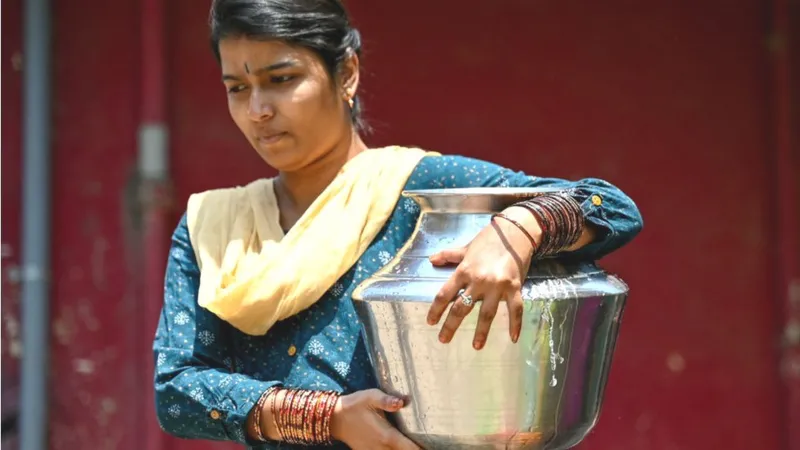Water crisis shakes India’s Silicon Valley : Bengaluru

In India’s Bengaluru city (formerly Bangalore), thousands of people have been chasing tankers, taking fewer showers and sometimes missing work to store enough water to get through the day.

The southern metropolis, once considered a retiree’s paradise thanks to its cool climate and lush gardens, is now better known as India’s IT hub, home to companies such as Infosys, Wipro and Hundreds of startups have luxury offices.
But years of rapid, often unplanned expansion have taken their toll and the city now appears to be booming.
“It is often said that traffic is the biggest problem in Bangalore, but in reality, water is the biggest problem,” says civic activist Srinivas Alavilli.
Bangalore’s 15 million residents require at least two billion liters of water every day, more than 70% of which comes from the Cauvery River.
The river originates in the state of Karnataka (of which Bengaluru is the capital) and has been at the center of a water-sharing conflict with neighboring Tamil Nadu for more than a century.
The remaining 600 million liters are groundwater extracted from drilled wells and supplied by oil tankers, providing a source of livelihood for people in the city’s suburban areas.
But last year’s weak monsoon depleted the water table, meaning new wells had to be dug deeper to find water.
This has led to a shortage of 200 million liters of water supply daily.
To combat this, the government has announced measures ranging from regulating fuel tanker prices to fining people who use drinking water for gardening and car washing.
Some conservation experts criticized the order, questioning how the government could hope to “monitor every household.
” While the shortage is felt across the city, the brunt is borne by people on Bangalore’s outskirts, especially in the 110 villages that were merged into the city in 2007.
People living in apartment buildings and gated communities say they have been forced to change their living habits, especially at a time of unusually high temperatures in what was once one of the most The hottest city in the world and the freshest in India.
In some apartment buildings, the residents’ protection association requires residents not to wash their cars more than twice a week, to only use half a bucket of water for washing, and to only use half the water for toilet flushing.




Leave a Comment